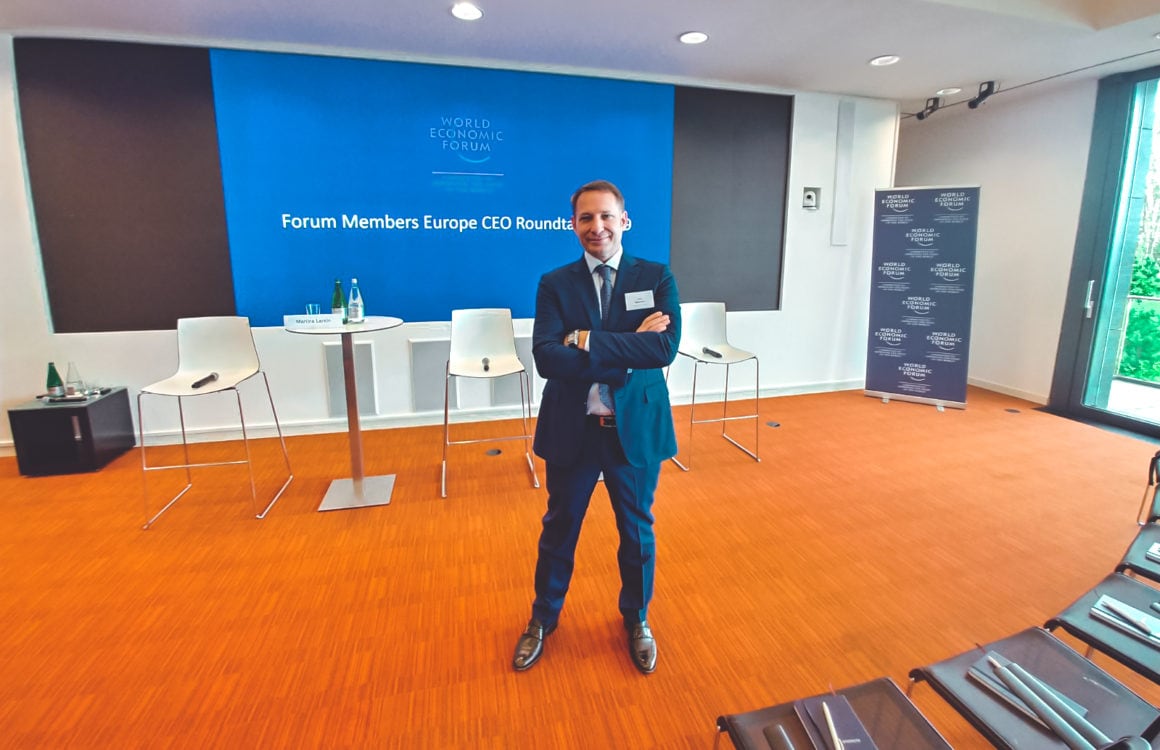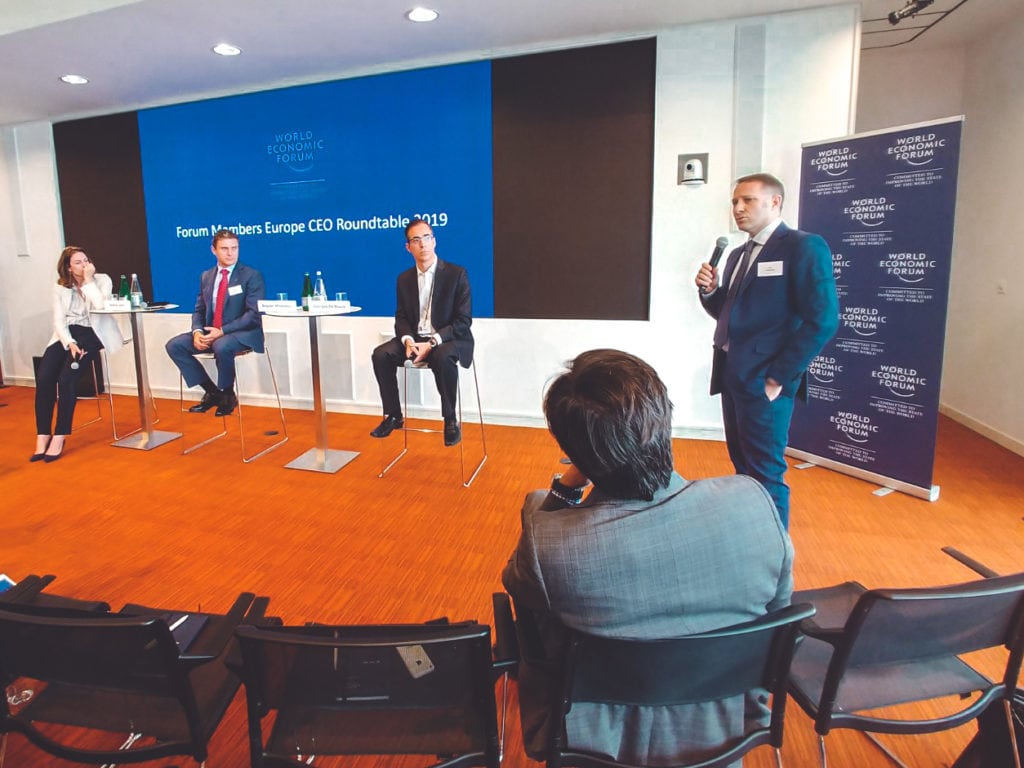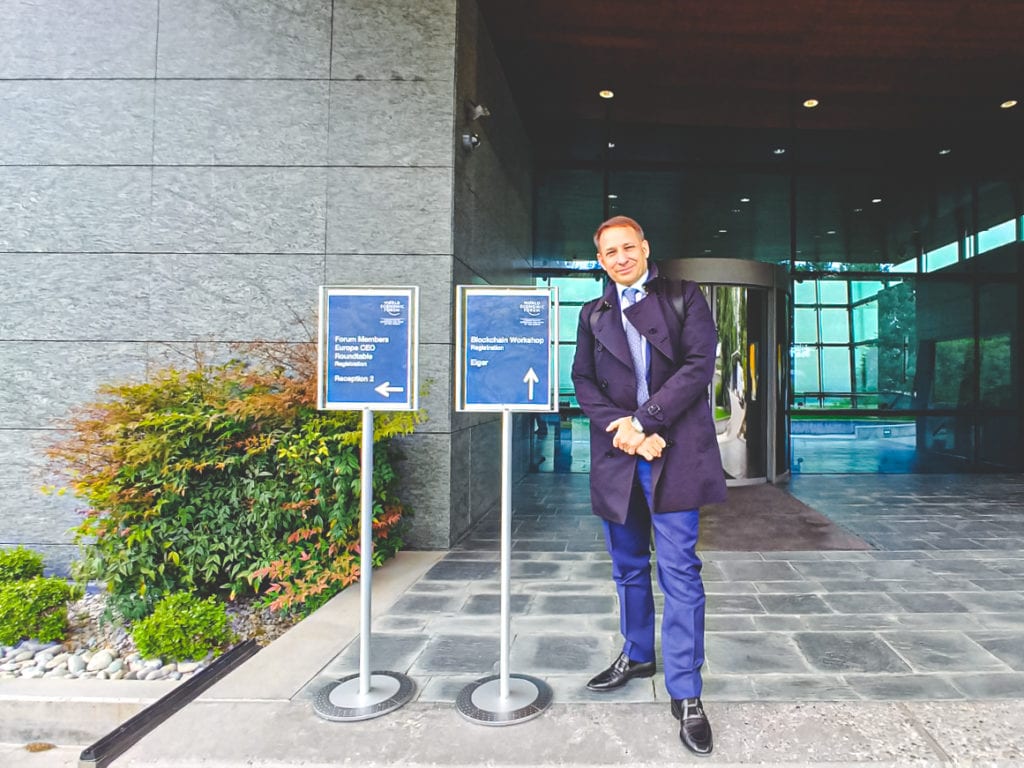Last week, on May 17, Codewise’s Executive Chairman and CEO John Malatesta took part in the Europe CEO Roundtable hosted by the World Economic Forum at its headquarters in Geneva, Switzerland.
Gathering CEOs of dozens of leading European companies, the Roundtable focused on Europe’s digital readiness in the new context of globalization, and on collectively shaping the transformation in the region. The agenda consisted of several interactive sessions and inspiring discussions with leading CEOs and experts.
What was discussed at the World Economic Forum Europe CEO Roundtable?
Key discussion topics included Europe’s perspectives in the field of Artificial Intelligence, new technologies and leadership models, evolving digital economy and society, and creating a common vision for the future of Europe. As one of the leading developers of AI-based solutions and one of the fastest-growing companies in Europe, Codewise brought its insights and perspectives on building globally competitive hi-tech solutions.
Most members of the European CEO community participating in the World Economic Forum Roundtable agreed that among critical requirements for securing Europe’s technological competitiveness were regional unity and cooperation between EU-based companies, as well as effective communication with the Public Sector and policymakers.
Codewise is committed to helping build a strong and competitive Digital Economy in Europe, and is investing its time and resources in building some of the world’s most advanced software technologies in the world.
By leveraging AI, machine learning, and data processing technologies in its solutions, Codewise helps thousands of companies around the world achieve their business goals and boost their ROI. Artificial Intelligence is a sophisticated cross-sectional discipline that has an incredible potential to transform multiple industries, and we are proud to contribute to its development in Europe and worldwide.
We believe that Codewise’s recipe of success can and should be re-created by other aspiring companies, so we are actively sharing our knowledge and expertise with the tech community at home and abroad. Speaking to the audience of fellow CEOs last week, John Malatesta addressed the need to face the changing global realities and join forces in building a stronger and more united tech industry in Europe, to compete more successfully with other regions that are successfully developing their tech sector today.
Other insights shared by Dr. Malatesta included the disadvantages for tech startups and scaleups in Europe, which enjoy access to only 10% of the globally available venture capital.
The data on the tech sector in Europe
The quantitative easing policy promoted by Mr. Mario Draghi at the European Central Bank led to an excess of liquidity and thus to low affordable interest, creating better financing conditions. Despite that, access to capital by startups and more mature companies in Europe is conditioned to extremely stringent rules. Venture Capital is, therefore, a great alternative.
Unfortunately, data shows that despite global venture capital investment rising to a record $255 billion in 2018, Europe’s share is only 10%, compared 50% for North America and 36% for China. The 10% is even more shocking considering that 35% of it goes to the UK. (Cision)
Compared to the period of 2006-2013, Europe’s share went down by 4 points, while China’s increased almost fourfold. Furthermore, while in the USA and Israel venture capital accounts to roughly 0.4% of the national GDP, in Europe, except for Ireland, the percentage is far below 0.05%. Lastly, early and late stages rounds are two times lower in Europe and exists are three times lower.
But what are the root causes?
- Low flexibility of the labor market
- High-cost of labor
- High corporate taxation, except for Hungary at 9% and Ireland at 12.5%, that reaches more than 30% in Italy and France
- Lack of tax incentives for venture capital
- Deep engineering skills, but lack of executive and entrepreneurial cloud economy (the economy of usage as opposed to ownership) skills that can turn powerful technology solutions into sustainable business models.
- The management of the P&L of the cloud economy, where revenue is MMR-ized and costs are upfront, requires a new set of experiences and a different business mindset
- Lack of growth and late-stage funds. As more funds focus on getting involved in businesses early, this results in a lack of capital for growth-stage companies
- Lack of sufficient government financing/co-funding for series rounds
What are the consequences?
As European companies cannot easily attract venture capital, they are forced to focus on profitability as opposed to growth, which means that innovation becomes virtually unaffordable to them. This widens the risk of Europe lagging behind the US and a rising China.
What are the solutions?
Last week’s WEF Europe CEO roundtable demonstrated both the potential harbored by the European tech sector and the challenges that it faces today. Codewise is committed to remaining an active and responsible participant of Europe’s business, technology, and academic ecosystem.
We are looking forward to leveraging the World Economic Forum’s platform for working with our peers, as well as policymakers and Public organizations on solutions and on building a more prosperous and competitive Europe for everyone.
We are grateful to the World Economic Forum for hosting the Europe CEO Roundtable and providing its globally-recognized platform for the very productive discussions and resolutions that took place in Geneva last week.





